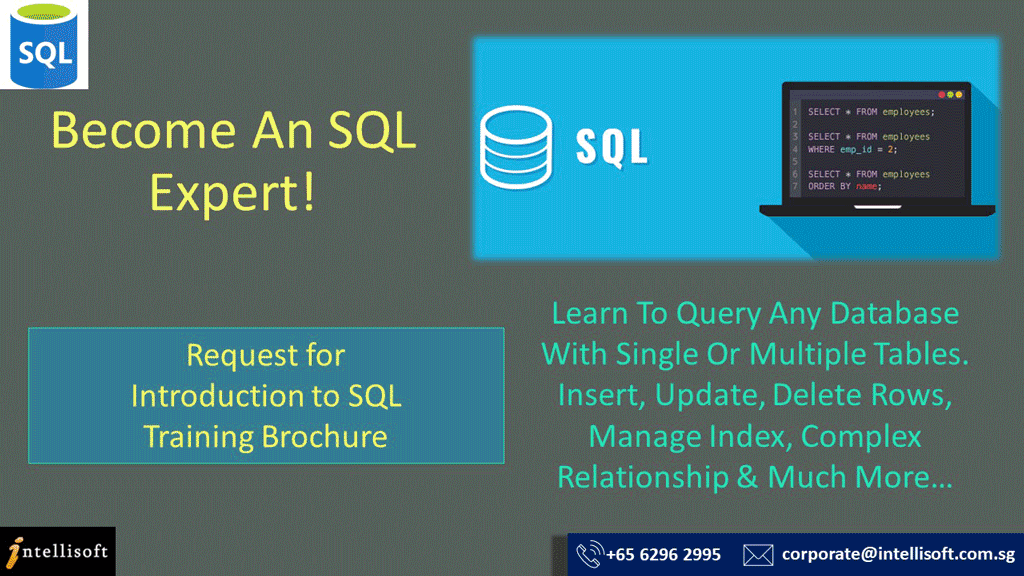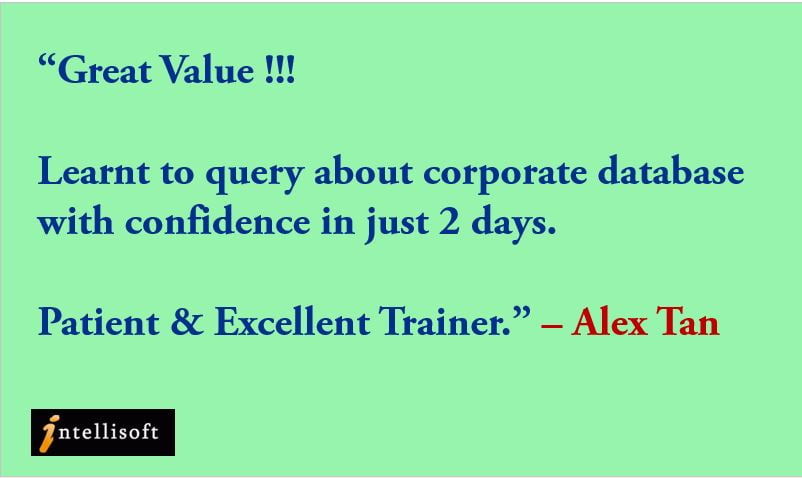
SQL stands for Structured Query Language. It is the language used to interact with any RDBMS (Relational Database Management System) like Oracle, SQL Server, MySQL, PostgreSQL.
Attending a SQL training course will teach you how to query SQL databases, step by step. The most common types of requests are where you want to pick out some rows or records from a database table. You want to analyze data yourself.
To extract the data from any database, we can write a SELECT query, to extract that data from the table within the database.
A single table SQL query is pretty easy to write. It almost reads like English. You can qualify which columns you want, and what you want to filter out, based on your criteria.
Once you execute the query, the results from the database are picked up and displayed almost instantly. Retrieval of SQL data from a database is usually extremely fast.
A multiple-table SQL query requires you to understand the relationships between the different tables within the database, the primary key and secondary keys of the various tables, and then carefully do the joining of the common fields between the different tables.

Once the common fields are linked between the tables, a data model is created. The common fields help to essentially create a long flat row, where you can pick any columns (or field) from any table in the combined row. This is the power of SQL. It is the reason almost everyone wants to learn SQL.
Multiple table queries are more useful, and they are similar to writing multiple VLOOKUPs in Excel to get to the Master & Transaction data in a single row.
Writing Multiple table SQL queries is where most people get stuck… because of the various ways to join – right join, left join, inner join, outer join etc.
This is where attending a SQL Training Course comes in handy. By joining a short 2 day SQL workshop, you can understand the fundamentals of SQL.
You will be able to do use these SQL Commands after attending a SQL workshop in Singapore:
- How to insert data into a database table with the SQL INSERT statement,
- how to delete records from any table by writing a SQL DELETE statement.
- how to modify any data in any table within the SQL Database using the UPDATE statemet,
- how to retrieve any number of columns from a single or multiple related tables, based on any selection criteria, with the SELECT SQL Statement.
If you can attend a classroom training course for SQL, I would seriously recommend it. The reason is that in a Classroom SQL Course, you can ask questions on the spot, and there is an expert SQL trainer to assist you too.
Check out our SQL Training Course in Singapore for Classroom Training
In our most popular SQL course in Singapore, we cover SQL statements like SELECT, INSERT, UPDATE, DELETE, CREATE TABLE, CREATE INDEX, CREATE VIEW, DROP, JOINS, and much more.
SQL is a very standard language, simple & business-like. It is like talking to someone in English. Pretty simple & straightforward. And it does not feel like learning a new language. It is pretty intuitive and easy to learn. A two day SQL workshop is more than sufficient to get you going on your journey to pick any data from your corporate databases.
A standard SQL based on the American National Standards Institute ANSI is best because you can then apply the standard SQL on any ANSI Relational Database.
The version of SQL is not really important, as most modern SQL database systems are up to date with the latest ANSI standards.
